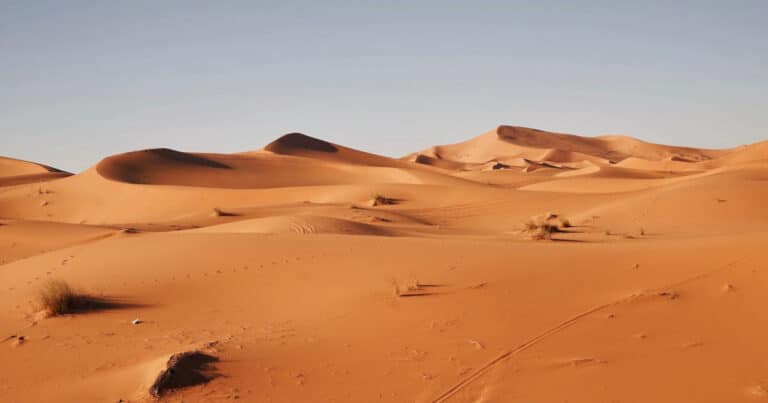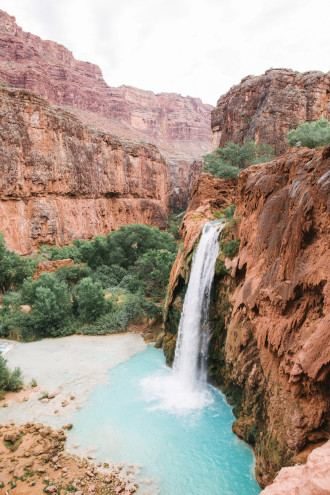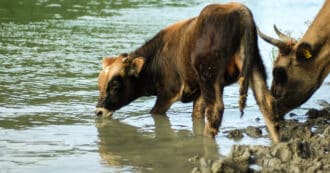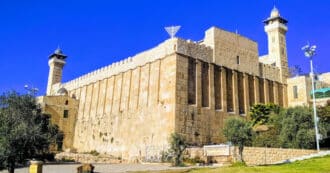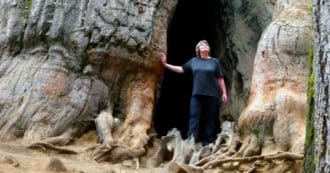By Ilana Stein – In the second book of the Bible, in Exodus 17, we read about how the Israelites began their wandering through the desert and experienced their first challenge of thirst. The Israelites complained to Moses, who went to God, and God told Moses to strike a rock to get water. Moses did so, the water began flowing from the rock, and as a result the Israelites got abundant water from the rock.
The Israelites then continued on their way, but their old and weak were attacked by a nomadic tribe called Amalek. The Israelites gained courage from seeing Moses leading them from on top of the hill with his arms in the air. However, when Moses became tired, his arms fell, and so did the resolve of the Israelites. Aaron and Hur joined Moses and helped hold up his arms. When the people looked up and saw Moses, Aaron and Hur, they were inspired and defeated Amalek. After the war with Amalek, Moses built an altar to remember this important victory and the cruelty of Amalek.
This chapter contains important ideas that can inspire us in taking better care of our planet and ourselves. Let’s look deeper to understand what’s lying beneath the surface, starting with a commentary from the best-selling book, “Eco Bible.”
Eco Bible
“From the Wilderness of Sin the Whole Israelite Community Continued by Stages as the Lord Would Command. They Encamped at Rephidim, and There Was No Water for the People to Drink” (Exodus 17:1).
Maimonides writes, “It was the wisdom of God to cause them to wander in the wilderness until they learned heroism – as it is known that camping in the desert and limiting the pampering of the body by bathing, and the like, generates strength of character, while the opposite yields a spirit of soft-heartedness – and it thereby generates people who will not be inferior or slaves.”
According to research on the impact of family camping holidays on youth:
There is considerable evidence that family outdoor recreation helps in developing family strength and relationships. Outdoor programs often incorporate leisure activities that not only develop skills and require physical movement beneficial to health, but also teach perseverance, teamwork, and cooperation among family members. Further, outdoor recreation is important for healthy growth of youth. Most outdoor leisure activities take place in a variety of natural settings that are quite distinct from the constructed environment of the schoolyard or home. Outdoor recreation programs contain inherent challenges and offer opportunities for overwhelming mastery experiences that produce feelings of efficacy and have positive effects on family functioning. In addition, the feeling of collective efficacy through outdoor recreation can be generalized to other domains of family functioning, such as the ability to resolve conflict.
This is the power of exposing ourselves and our families to nature!
Camping is considered extremely beneficial, for a number of reasons as we saw above. But one of the most fundamental benefits is that of connecting with nature which can inspire one or raise one’s mood. Anne Frank, who died in the Holocaust, wrote about it in her diary, subsequently published as “Diary of a Young Girl”:
The best remedy for those who are afraid, lonely or unhappy is to go outside, somewhere where they can be quiet, along with the heavens, nature and God. Because only then does one feel that all is as it should be and that God wishes to see people happy, amidst the simple beauty of nature. As long as this exists, and it certainly always will, I know that then there will always be comfort for every sorrow, whatever the circumstances may be. And I firmly believe that nature brings solace in all troubles.
Inspiration of the Wilderness
The word ‘mdbar’ is translated as ‘wilderness’ in the King James bible and ‘desert’ in other translations. The word ‘wilderness’ itself has a negative connotation: “an uncultivated, uninhabited, and inhospitable region” (OED). However, this does not have to be so. A place that is not filled with the noise of towns and societies allows for an experience of silence and connection.
The Israelites may have struggled in the desert, and grumbled against Moses, but we can learn from the experience: Connecting with nature not only reconnects us to our world but also to its creator. The way to do this is through the silence of the desert, as Rabbi Sacks so beautifully put it:
The desert is a place of silence. There is nothing visually to distract you, and there is no ambient noise to muffle sound. To be sure, when the Israelites received the Torah, there was thunder and lightening and the sound of a shofar. The earth felt as if it were shaking at its foundations. In the silence of the midbar, the desert, you can hear the Medaber, the Speaker, and the medubar, that which is spoken. To hear the voice of God you need a listening silence in the soul.
Thirst as a Driver of Conflict
Perhaps it is no coincidence that the intense internal struggle among the Israelites over their lack of water was followed by the attack by Amalek. Let’s read a bit about these struggles directly from the Biblical verses:
2 The people quarreled with Moses and said “Give us water to drink,” and Moses replied to them, “Why do you quarrel with me? Why do you try the LORD?”
3 And the people thirsted there for water; and the people murmured against Moses, and said, Why is this that you have brought us up out of Egypt, to kill us and our children and our cattle with thirst?
4 And Moses cried to the Lord, saying, What shall I do with this people? They are almost ready to stone me.
8 Then Amalek came and fought with Israel in Rephidim.
Contemporary research shows a strong correlation between water and conflict. “Could a Lack of Water Cause Wars?” in Scientific American explores this correlation, especially as it is exacerbated by climate change.
Less water availability can cause war, not just between countries but internally: “… if individuals use water scarcity as an opportunity to consolidate political power, or accuse others of stealing water, the result can be war.”
There is nothing like a waterless desert to make us understand that there is a limit to our water resources.
Identifying Water Resources
We read in Chapter 17 about how God instructed Moses to find water in the desert:
5 And the Lord said to Moses, Go on before the people, and take with you the elders of Israel; and your rod, with which you struck the Nile, take in your hand, and go.
6 Behold, I will stand before you there upon the rock at Horeb; and you shall strike the rock, and there shall come water out of it, for the people to drink. And Moses did so in the sight of the elders of Israel.
Finding water in the desert is as important today as it was then. In Africa, which is generally dry, with most water trapped underground, companies like Innovation Africa do as Moses did – releasing water from the ground through the use of solar energy and boreholes.
Protecting and Sharing Water Resources
Freshwater is getting scarcer, as the Worldwide Fund for Nature reports: “Climate change, population growth and changing consumption patterns are just a few of the myriad forces putting freshwater systems increasingly at risk”.
Water pollution is a major part of this: water is being contaminated more and more due to untreated sewage, industry, agriculture and more. We need to value our resources, just as the Israelites in the desert did.
The rock in the desert provided clean, drinkable water for the people. Today, this aim is one of the United Nations’ Sustainable Development Goals – Goal no. 6 – which is: Clean water and sanitation for all.
But we can all help. There are a number of actions that individuals can take, for example:
- Undertake a cleanup of your local river or beach,
- Cut down on pesticides or fertilizers that you use,
- Be careful what substances you use and allow to go down the drain.
Even more inspiring than finding water is sharing water, as can be seen in a water-for-energy deal made between Jordan and Israel which aims to ease the impact of climate change. Here, Israel has more water than it needs, whereas Jordan doesn’t. On the other hand, Jordan has the room – and the sun – for a solar power plant that can export 600 megawatts of energy a year to Israel.
Sharing of our resources in such a way is a high ideal that paves the way for peace.
* Featured image source

